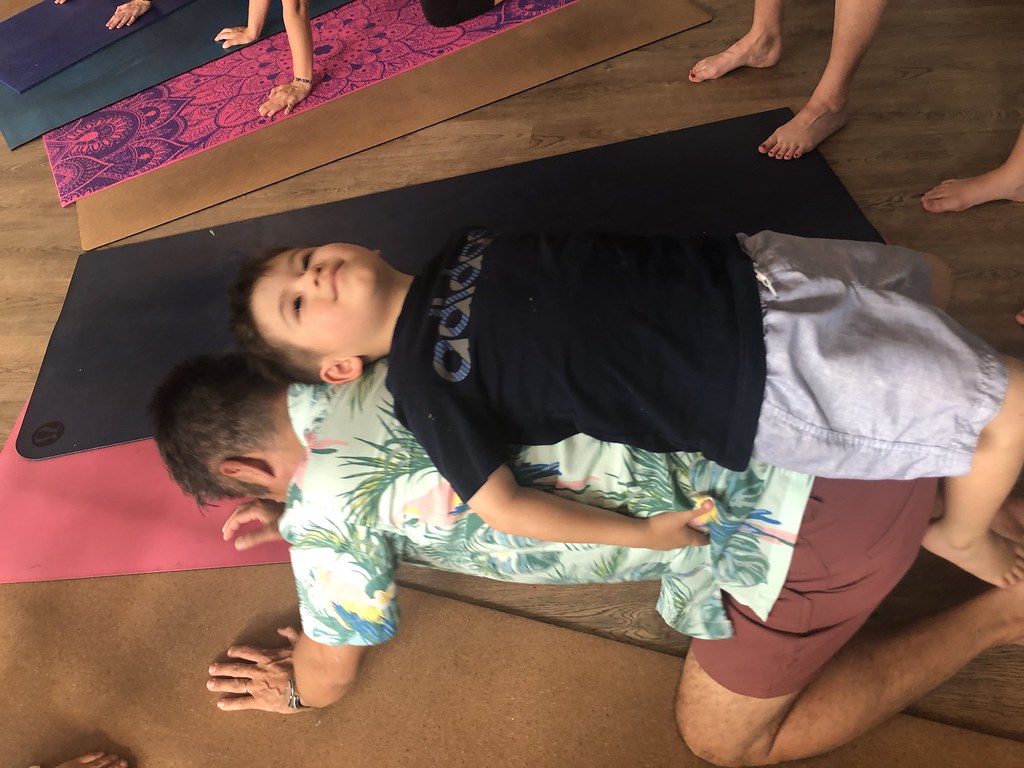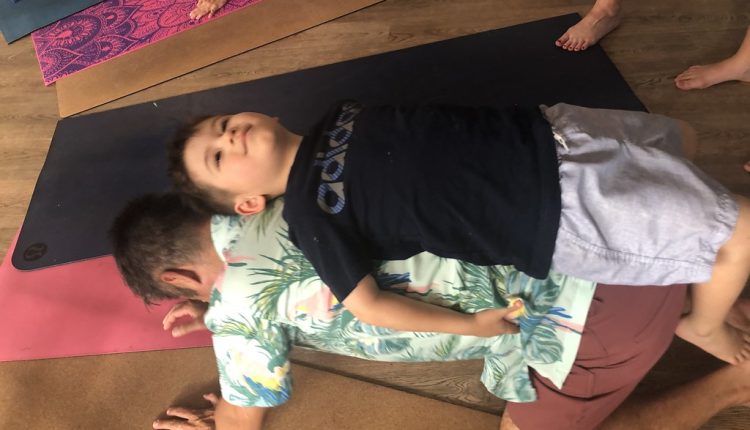
In a world where children are constantly bombarded with screens and technology, it’s easy to forget the importance of physical activity and mindfulness. However, recent studies have shown that incorporating yoga into a child’s routine can have a significant impact on their brainpower and overall well-being. Mindful moves, such as downward dog and tree pose, not only improve flexibility and balance, but also enhance cognitive function and emotional regulation. So, let’s explore the benefits of yoga for kids and how it can help them thrive both on and off the mat.
1. “The Power of Mindful Movement: How Yoga Can Enhance Children’s Cognitive Abilities”
Yoga is a form of mindful movement that has been shown to have numerous benefits for children’s cognitive abilities. By practicing yoga, children can improve their focus, attention, and memory, as well as reduce stress and anxiety. Here are some ways that yoga can enhance children’s cognitive abilities:
– Improves focus and attention: Yoga requires children to focus on their breath and body movements, which can improve their ability to concentrate and pay attention in other areas of their life.
– Enhances memory: Yoga poses and sequences can help children improve their memory by requiring them to remember the order of movements and hold poses for a certain amount of time.
– Reduces stress and anxiety: Yoga has been shown to reduce stress and anxiety in both children and adults. By practicing yoga, children can learn techniques to manage their emotions and reduce feelings of stress and anxiety.
In addition to these cognitive benefits, yoga can also improve children’s physical health by increasing flexibility, strength, and balance. By incorporating yoga into their daily routine, children can develop a lifelong habit of mindfulness and self-care.
2. “From Downward Dog to Straight A’s: The Surprising Benefits of Yoga for Kids’ Brains”
Yoga is a practice that has been around for thousands of years, but it’s only recently that its benefits for children’s brains have been studied. The results are surprising: yoga can help kids improve their focus, memory, and academic performance. Here are some of the ways that yoga can benefit kids’ brains:
- Improved focus: Yoga requires concentration and focus, which can help kids develop these skills. Studies have shown that regular yoga practice can improve attention and reduce distractibility in children.
- Better memory: Yoga can also help improve memory and learning. One study found that children who practiced yoga for 20 minutes a day for eight weeks had better memory and cognitive function than those who didn’t practice yoga.
- Reduced stress: Stress can have a negative impact on children’s academic performance, but yoga can help reduce stress and anxiety. Studies have shown that yoga can lower cortisol levels, which is a hormone associated with stress.
In addition to these benefits, yoga can also help children develop self-awareness, self-esteem, and emotional regulation. By practicing yoga, kids can learn to tune into their bodies and emotions, which can help them better understand themselves and others. Overall, yoga is a powerful tool for promoting children’s brain development and academic success.
3. “Mindful Moves: How Incorporating Yoga into Children’s Lives Can Improve Their Academic Performance
Yoga is a practice that has been around for thousands of years, and it has been proven to have numerous benefits for both the mind and body. When it comes to children, incorporating yoga into their daily routine can have a positive impact on their academic performance. Here are some ways that mindful moves can help children succeed in the classroom:
– Improved focus and concentration: Yoga teaches children to be present in the moment and focus on their breath and movements. This can translate to better concentration in the classroom, as children learn to tune out distractions and stay focused on the task at hand.
– Reduced stress and anxiety: School can be a stressful environment for children, and yoga can help them manage their emotions and reduce anxiety. By practicing mindfulness and relaxation techniques, children can learn to cope with stress in a healthy way and feel more calm and centered.
In addition to these benefits, yoga can also improve children’s physical health by increasing flexibility, strength, and balance. By incorporating yoga into their daily routine, children can develop healthy habits that will benefit them for years to come. In conclusion, it’s clear that yoga is not just a physical exercise but also a mental one. By practicing mindfulness and breathing techniques, children can improve their focus, reduce stress, and boost their brainpower. Incorporating yoga into their daily routine can have a positive impact on their overall well-being and academic performance. So, let’s encourage our little ones to strike a pose and reap the benefits of this ancient practice. Namaste!

